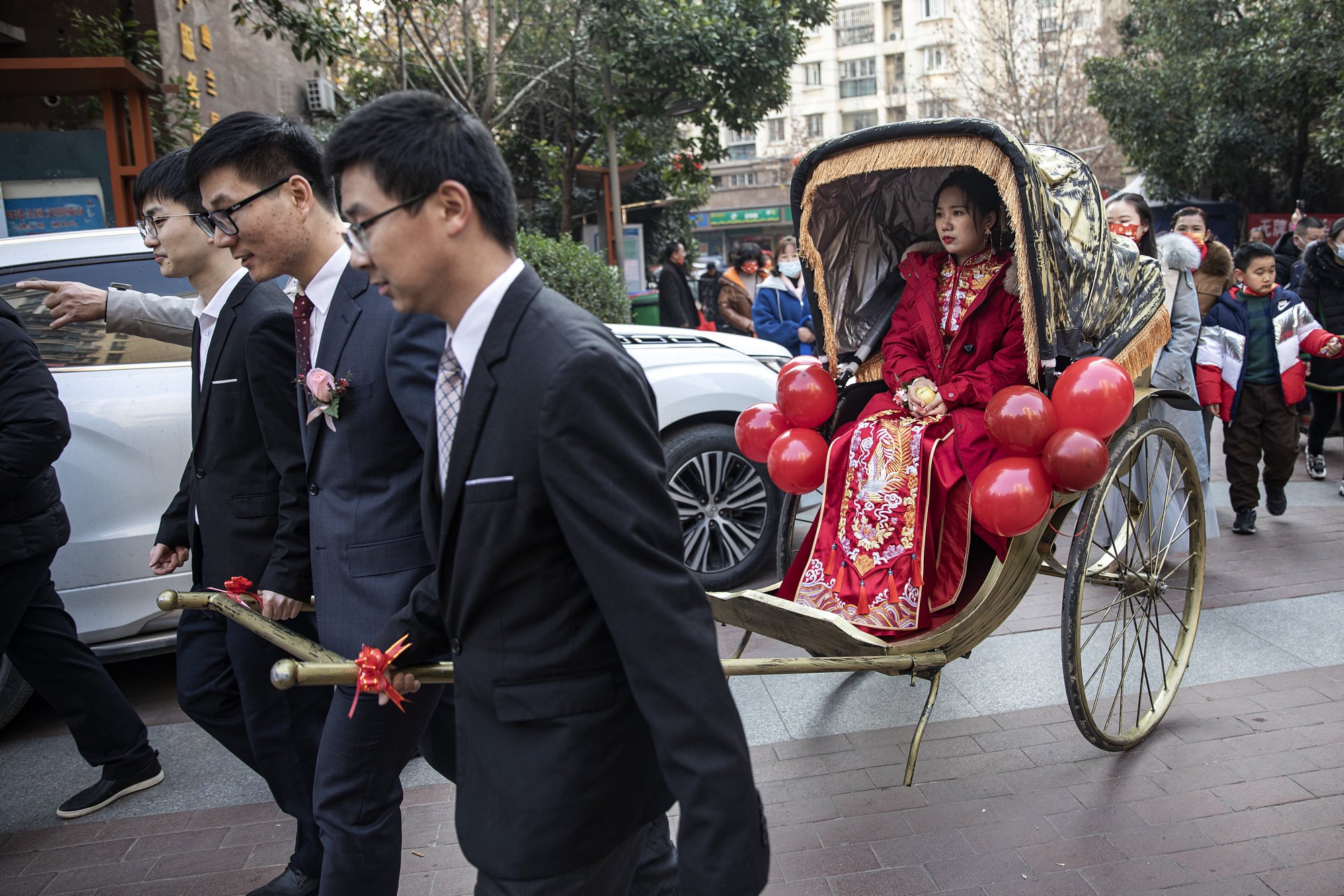
China divorce cooling-off rule: one year after controversial law enacted authorities claim rates of separation declining
- Chinese provinces have reported a significantly lower rate of divorce and claim it is due to a cooling-off period under new rules
- Eastern China’s Chongqing municipality said the rate of divorce had decreased by almost half since the law was enacted a year ago
The civil affairs bureau in western China’s Chongqing municipality said earlier this month that over 50,000 estranged couples decided against divorcing each other during the one-month waiting period last year, contributing to a 44 per cent fall in divorce numbers since 2020.
Eastern China’s Qingdao city, Shandong province, witnessed the lowest divorce number in a decade with just 16,000 break-ups in 2021, down 33 per cent from the previous year, the government said.
In Guiyang, Guizhou province in the southwest, local authorities found roughly a quarter of the couples seeking a divorce “ended up cooling off during the ‘cooling-off’ period”, the Guiyang Daily reported, quoting a government official.

Nationwide, there were over 1.58 million divorces in the first three quarters of 2021, down by over 1 million from the same period in 2020, according to the Ministry of Civil Affairs.
In January 2021 China introduced a law requiring couples seeking a divorce to wait for 30 days before the process could be finalised, a move the government said was aimed at improving social stability, however many people regarded the rule as an interference with the freedom of marriage.
Li Xue, a Shanghai-based white-collar worker who just divorced her husband, said she regretted she didn’t get divorced earlier when her marriage had already fallen apart before the rule was introduced.
“My experience is that it’s really, really difficult to get divorced, so I’d advise those who haven’t married to be cautious before doing it,” she said.
“You can’t even get it started if your spouse doesn’t go to file an application with you. After the application, there’s the 30-day period, when either of you can cancel it. You’ll need to start all over if your spouse cancels the application,” she said.
“It’s not easy if you go to court. Often it won’t grant a divorce if it’s the first time you file for one. It would only do so the second time,” she added.
China has not issued figures for divorces through legal actions since 2017. Figures from civil affairs departments only cover divorces by consent, or those that do not go to court, even though most divorces in China occur in this manner, noted Guangzhou-based divorce lawyer Wu Jiezhen.
Wang Leehom: estranged wife alleges star tried to enter her home with 3 men
“So it’s notable that data from civil affairs authorities doesn’t show the entire picture,” he said.
While many local governments claimed the cooling-off measure is “working very well”, Shanghai-based psychologist Huang Jing said judging from the perspective of individual happiness that getting a divorce is only a knee jerk reaction to an ailing marriage, it does nothing to heal it.
“For the policymakers, the purpose of the measure is to retain stability. They don’t take individual happiness into account,” she said.


